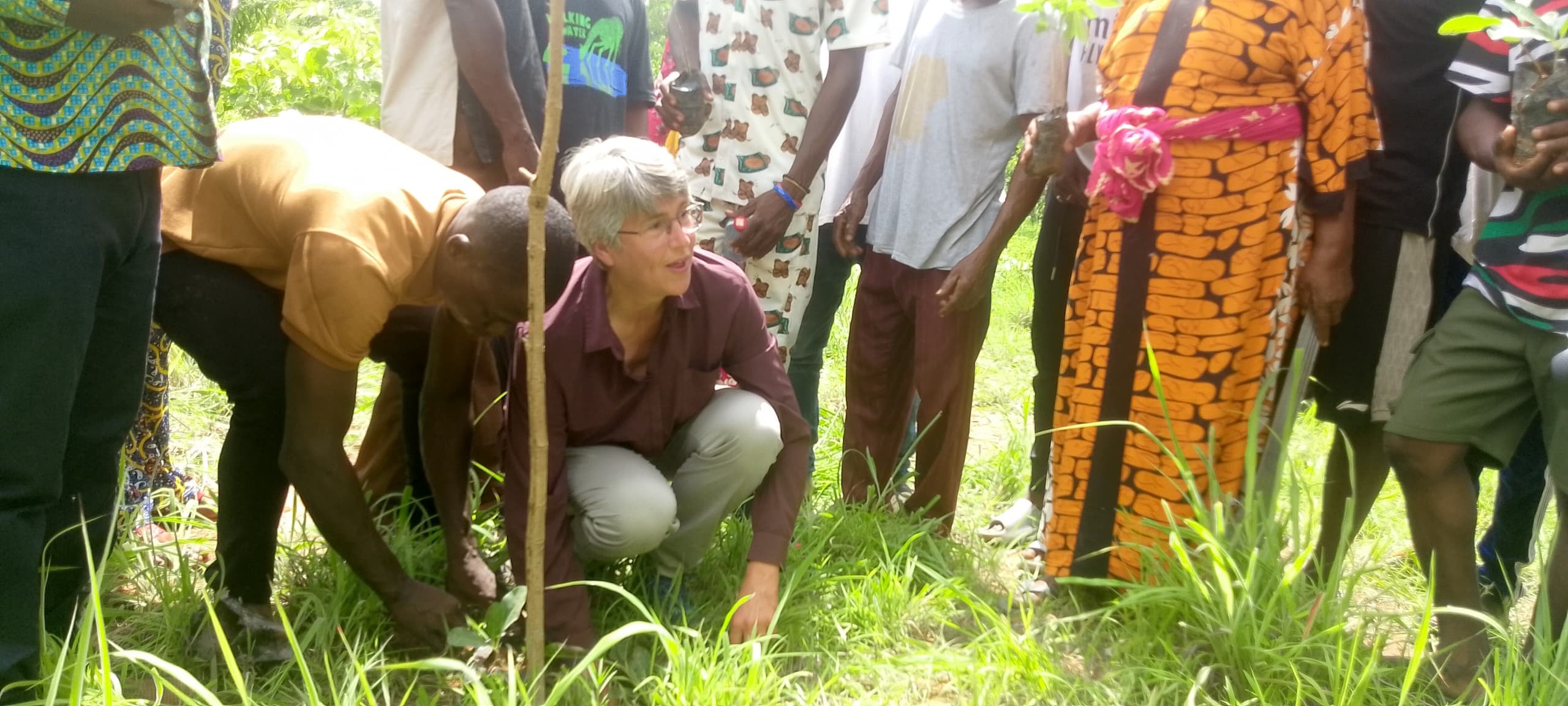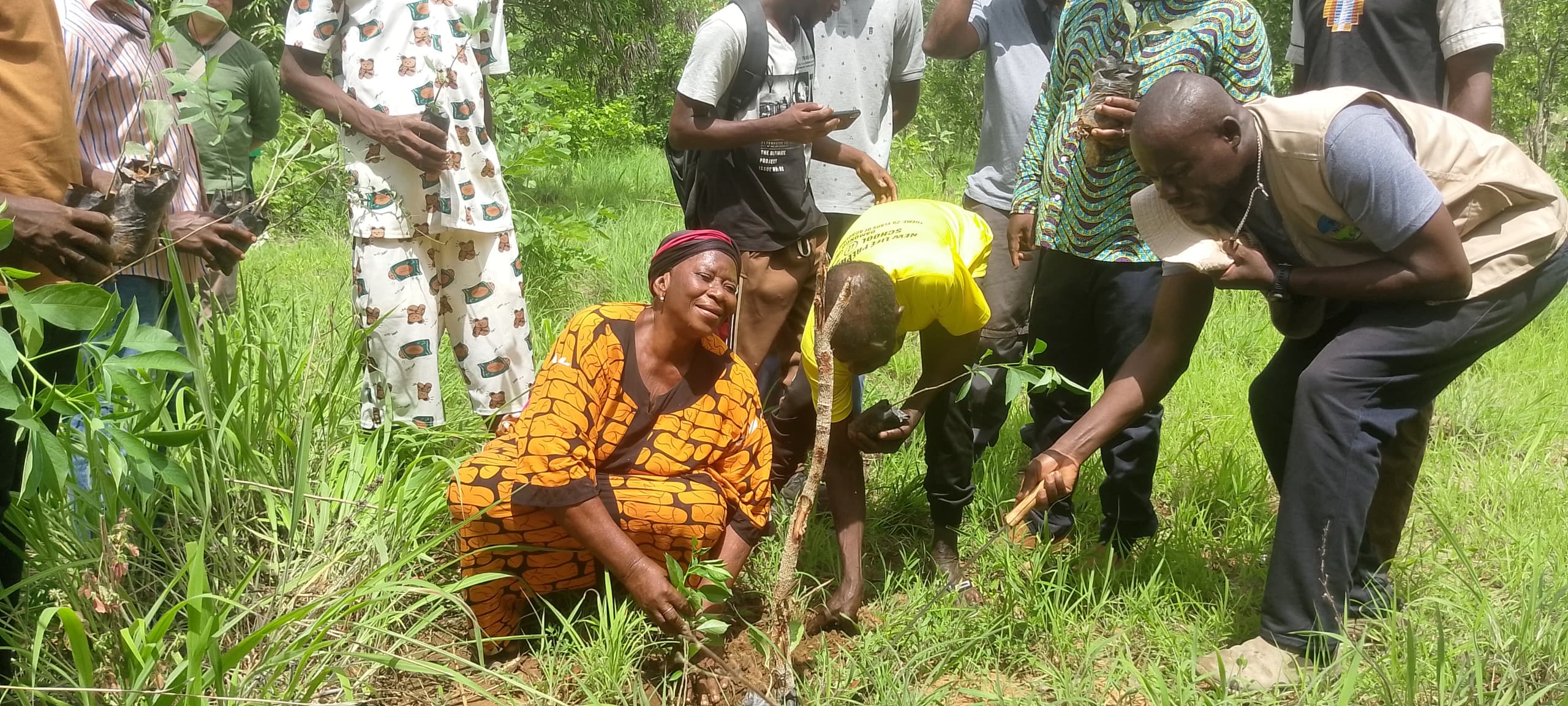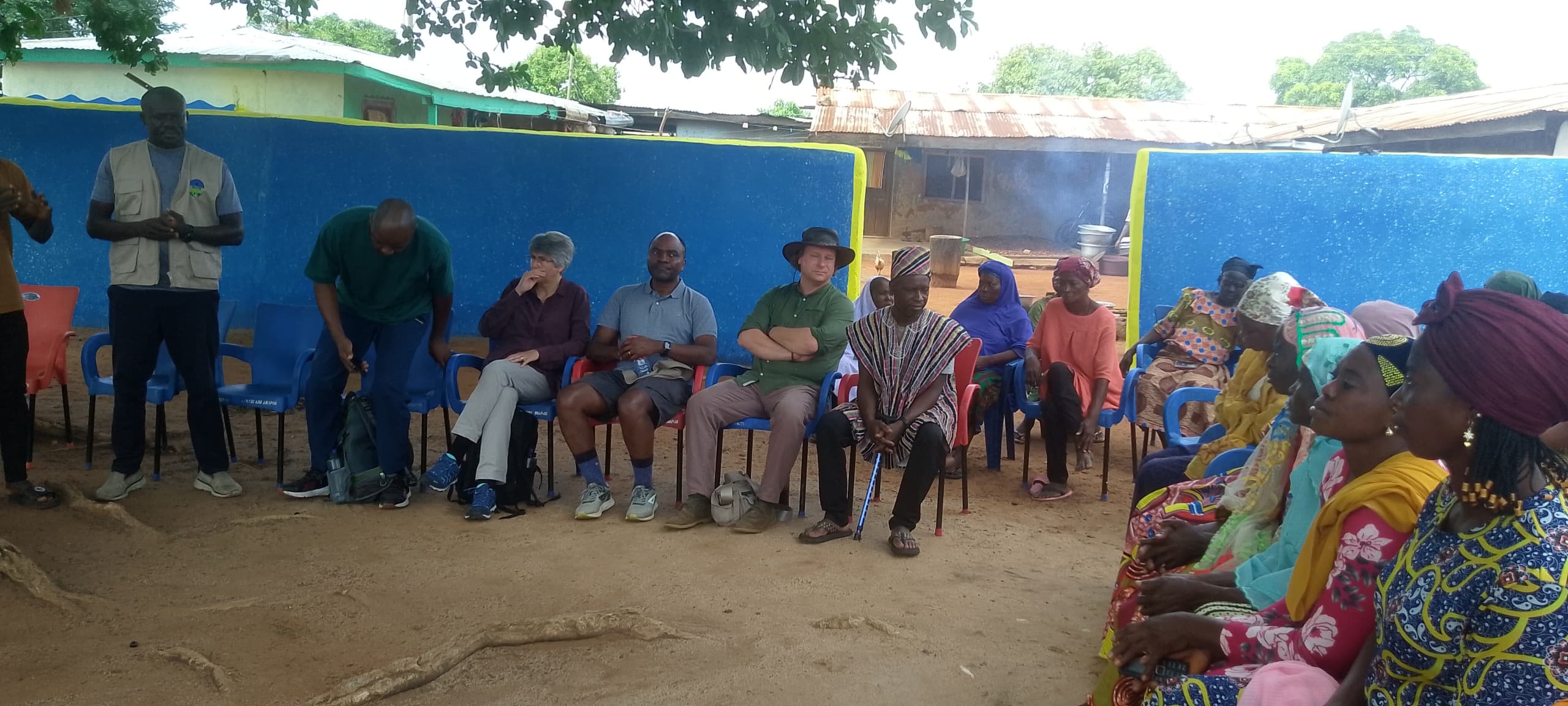Climate Change & Energy
S/R: Ghana Wildlife Society plants 600 Native Trees At Keni-Keni Forest Reserve
Source: ghenvironment.com - June 2, 2025

As part of its conservation efforts, the Ghana Wildlife Society, a non-governmental organisation has planted some 600 native trees in the Keni-Keni forest reserve, near Kabampe and Kananto Community Resource Management Area (CREMA) in the Savannah Region.
The tree planting is to enrich the forest reserve located in the communities which are near the Mole National Park in the West Gonja Municipality.
According to Prof Erasmus Owusu Ag. Executive Director for Ghana Wildlife Society and Council Member to the Wildlife Society, the tree planting will not only enrich the forest reserve but will support Ghana's diverse wildlife.
This, he said, will ultimately lead to a better environment and improved quality of life for all people.
Prof Owusu further revealed that there is a gap in Kabampe, Kananto through to Larabanga CREMA and the tree planting exercise is targeted at closing the gap since the concept serves as a buffer for the conservation of the Mole National Park.
He also pointed out that the Ghana Wildlife Society, with support from the Royal Society for Protection of Birds in the UK, obtained funding from the Ecological Restoration Fund to restore ecosystem by planting native trees, thereby enhancing oxygen production and climate stabilization.
"These particular tree planting is strategically done to feature different kinds of trees including Mahogany tree, Tamarind tree among others in order to avoid bono culture" he added.
The Head of fly way conservation with the Royal Society for the Protection of Birds (RSPB) Mr. Wenceselas Gatarabirwa, addressing the media
emphasized the key role trees play in the existence of birds, adding that whenever a single specie gets extinct, it is a big loss for mankind.
"Birds have important functions. For instance Vulture, you can get diseases spread because carcasses of dead animals needs to be cleaned up."
"For smaller birds, some of them eat insects like mosquitoes. The prevalence of malaria and some other diseases is reduced because they are being controlled by birds" Gatarabirwa added.
He said tree planting is the first major step into a long road of community conservation of landscape because the trees will take several years to grow.
The Director of International Department of RSPB, Dr Joe Gilbert, in an interview mentioned that trees are very beneficial in the society including serving as home for birds, improve climate, and also benefits the various communities they are planted.
She used the opportunity to appeal to the two communities to take good care of the trees with support from the Ghana Wildlife Society and Mole National Park.
Some of the members of the Kabampe-Kananto CREMA who spoke to the media expressed their joy about the benefits they stand to gain from the trees planted and promised to take good care of them to ensure their survival in the area.
They also indicated that the tree planting exercise put together by the Ghana Wildlife Society will also forster unity among the two communities as they will do everything in common to ensure the trees are well catered for.
The Ghana Wildlife Society is the leading wildlife conservation NGO in Ghana with over three decades of experience in promoting the conservation of wildlife in all its forms.





